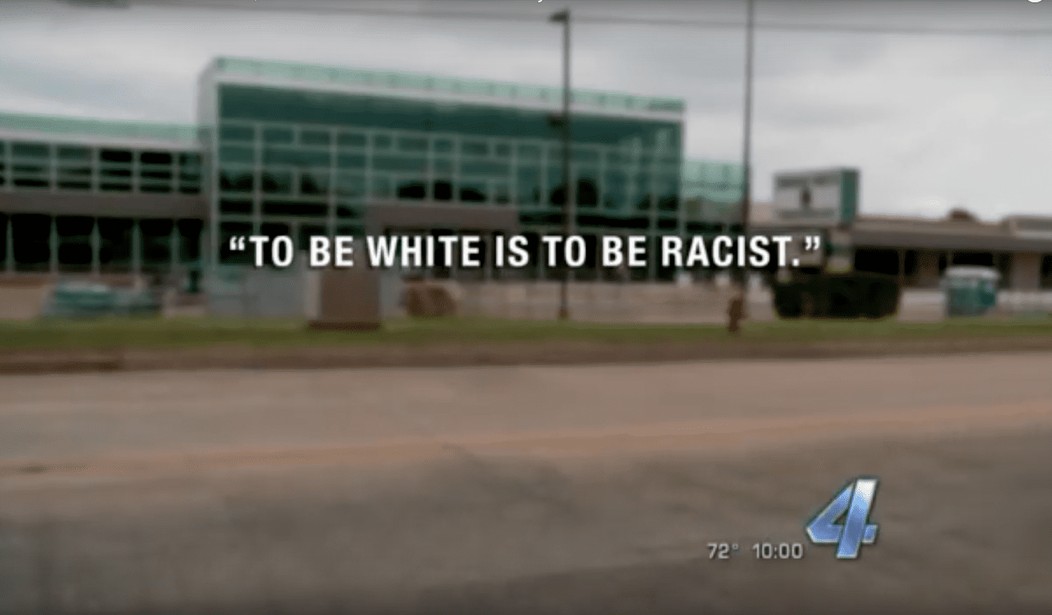The parents of a high school student in Oklahoma are livid that their daughter’s teacher said all white people are racist. The girl caught the comments on tape with her phone.
“To be white is to be racist, period,” the teacher at Norman North High School declared in class. The student, who is not entirely white, felt very offended.
“Half of my family is Hispanic, so I just felt like, you know, him calling me racist just because I’m white… I mean, where’s your proof in that?” the anonymous student asked in an interview with News Channel 4.
When the girl came home and shared the audio with her parents, they took their complaint to the school. “Why is it ok to demonize one race to children that you’re supposed to be teaching a curriculum?” the father asked.
“I feel like he was encouraging people to kind of pick on people for being white,” the girl explained. This is how the language of race comes across to teenagers. In high school, when bullying is still an issue, insisting that all white people are racist can seem like a perfect justification for targeting them.
To be fair, the teacher did not see it that way. Himself white, the man admitted his own racism: “Am I racist? And I say yeah, I don’t want to be. It’s not like I choose to be racist, but do I do things because of the way I was raised?”
The teacher himself may not have seen bullying as an issue — after all, he himself is white. How could a white teacher’s well-meaning mea culpa on racism be interpreted as a justification to attack white people? But if students are taught that white people are racist and therefore irredeemably bad, then is it really such a stretch that this girl would interpret her teacher’s lesson as an attack on her dignity?
If a child — even in her teenage years — is told that she is racist and there is nothing she can do about it, how can she process that information? Her teacher is berating her and she is not allowed to respond.
When asked for a comment, the school district responded by emphasizing that “racism is an important topic that we discuss in our schools.”
“While discussing a variety of philosophical perspectives on culture, race and ethics, a teacher was attempting to convey to students in an elective philosophy course a perspective that had been shared at a university lecture he had attended,” said Joe Siano, superintendent of Norman Public Schools. “We regret that the discussion was poorly handled.”
Siano insisted that “when the district was notified of this concern it was immediately addressed.” Naturally, he did not explain how it was addressed or whether other teachers might expose children to the hot-button ideas on race now in vogue across America. Instead, he said, “We are committed to ensuring inclusiveness in our schools.”
But what does “inclusiveness” mean here? Does it entail not demeaning white people as necessarily racist? Or is that too far? The language of inclusivity often entails taking pains to make “people of color” feel at home, and this often means attacking white people as inherently racist. How could “inclusiveness” really mean being prejudiced against white people?
“You start telling someone something over and over again that’s an opinion, and they start taking it as fact,” the aggrieved student argued. “So, I wanted him to apologize and make it obvious and apparent to everyone that was his opinion.” For some reason, I don’t think the concern being “addressed” means the teacher has agreed to apologize. But I would love to be proven wrong.
Hear the audio on the next page.
https://www.youtube.com/watch?v=42ujAv_RBMI









Join the conversation as a VIP Member